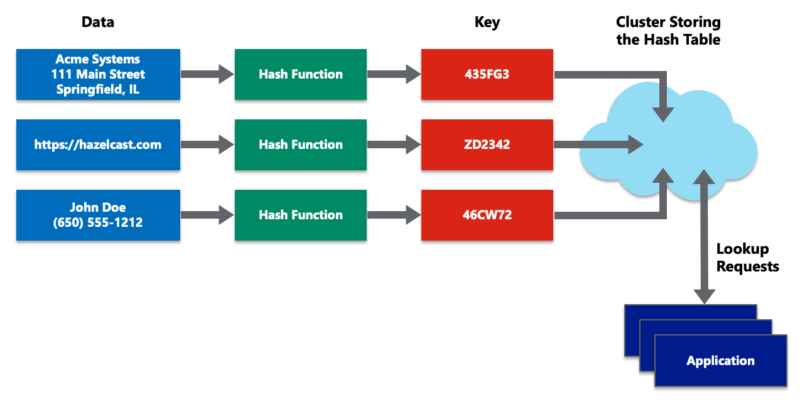What Is a Distributed Hash Table?
A distributed hash table is a decentralized data store that looks up data based on key-value pairs. Every node in a distributed hash table is responsible for a set of keys and their associated values. The key is a unique identifier for its associated data value, created by running the value through a hashing function. The data values can be any form of data.
Distributed hash tables are decentralized, so all nodes form the collective system without any centralized coordination. They are generally fault-tolerant because data is replicated across multiple nodes. Distributed hash tables can scale for large volumes of data across many nodes.

Why Is a Distributed Hash Table Used?
Distributed hash tables provide an easy way to find information in a large collection of data because all keys are in a consistent format, and the entire set of keys can be partitioned in a way that allows fast identification on where the key/value pair resides. The nodes participating in a distributed hash table act as peers to find specific data values, as each node stores the key partitioning scheme so that if it receives a request to access a given key, it can quickly map the key to the node that stores the data. It then sends the request to that node.
Also, nodes in a distributed hash table can be easily added or removed without forcing a significant amount of re-balancing of the data in the cluster. Cluster rebalancing, especially for large data sets, can often be a time-consuming task that also impacts performance. Having a quick and easy means for growing or shrinking a cluster ensures that changes in data size does not disrupt the operation of the applications that access data in the distributed hash table.